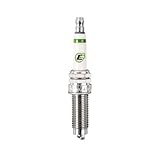Does Changing Spark Plugs Improve Performance
Ever wonder if swapping out your spark plugs can give your engine a boost? We’ll explore whether does changing spark plugs improve performance and much more in this detailed guide. You’ll learn about spark plug function, types, signs of worn plugs, and how a simple change can affect your vehicle’s power and efficiency.
Understanding
Spark Plugs and Their Function
Let’s start with the basics. What exactly are spark plugs, and why do they matter? A spark plug is a small but crucial component in your car’s engine. It’s responsible for igniting the air-fuel mixture within the combustion chamber. This ignition process is what powers your vehicle. Without a properly functioning spark plug, your engine wouldn’t run.
The Ignition Process: A Closer Look
The process is surprisingly simple, yet incredibly important. The spark plug receives a high-voltage electrical charge from the ignition system. This charge jumps the gap between the spark plug’s electrodes, creating a spark. This spark ignites the precisely measured air-fuel mixture. The resulting explosion pushes the pistons, which in turn, makes the engine run. Think of it as a miniature, controlled explosion happening thousands of times a minute. The efficiency of this explosion directly impacts your engine’s performance and fuel economy. A weak spark leads to incomplete combustion, reducing power and increasing emissions.
Types of Spark Plugs: Copper, Platinum, Iridium
Not all spark plugs are created equal. There are several types, each with its own lifespan and performance characteristics. Copper spark plugs are the most common and affordable type. They offer good performance for a relatively short lifespan (around 25,000 – 30,000 miles). Platinum spark plugs are more durable, lasting up to 100,000 miles. Iridium spark plugs are the longest-lasting, offering an exceptional lifespan exceeding 100,000 miles, and providing a more consistent and powerful spark. Choosing the right spark plug depends on your vehicle’s requirements and your budget.
Signs Your Spark Plugs Need Replacing
Ignoring worn spark plugs can lead to more significant issues. How do you know when it’s time for a change? There are several tell-tale signs. The most obvious is a noticeable decrease in engine performance. You might experience a loss of power, rough idling, or difficulty starting the engine. Other indicators include misfires (a cylinder isn’t firing properly), decreased fuel efficiency, and an illuminated check engine light.
Diagnosing Spark Plug Issues
If you suspect worn spark plugs, you might consider a DIY inspection. Disconnect the spark plug wires (be careful!) and remove the spark plugs. Visually examine them. Worn plugs may show signs of excessive wear on the electrodes, cracks in the insulator, oil or carbon deposits. If you’re not comfortable inspecting your spark plugs yourself, a professional mechanic can do it easily. Professional diagnostics are vital to determining the cause and extent of a spark plug’s issue, avoiding a costly misdiagnosis.
The Impact of Worn Spark Plugs on Fuel Economy
Worn or faulty spark plugs directly impact fuel economy. A weak spark leads to incomplete combustion of the air-fuel mixture. This means your engine isn’t getting the full benefit of the fuel it’s burning. The result? Reduced fuel efficiency, forcing you to visit the gas station more often. Replacing your spark plugs with new, high-quality ones can restore optimal combustion, leading to better fuel economy.
Does Changing Spark Plugs Improve Performance? Yes, Often!
The short answer is a resounding yes, often. Changing worn spark plugs can significantly improve your engine’s performance. A fresh set of plugs provides a stronger, more consistent spark, ensuring complete combustion. This improved combustion translates into better acceleration, smoother idling, and more power.
Real-World Examples and Case Studies
I’ve personally experienced the benefits of changing spark plugs in several vehicles. In my old Honda Civic, replacing the aging copper plugs with platinum ones dramatically improved acceleration and reduced hesitation during low-RPM driving. A similar upgrade to my friend’s Jeep resulted in better fuel mileage. These real-world improvements demonstrate the clear impact of proper spark plug maintenance. The positive results were so significant that the improvements were noticeable almost immediately.
Quantifiable Improvements: Horsepower and Torque
While the exact improvement in horsepower and torque varies depending on the vehicle and the severity of the previous spark plug wear, you can often expect a noticeable increase. For older vehicles, the change can be substantial. While not always massive, the difference is often worth the relatively inexpensive cost of the replacement parts. In modern vehicles with advanced computer controls, the change might be more subtle but still beneficial for fuel economy and smoother operation.
Factors Affecting Performance Gains
While new spark plugs usually improve performance, the extent of improvement depends on several factors. The age and condition of the existing spark plugs play a crucial role. Older plugs with significant wear will show much more significant improvements than relatively new plugs that are still performing well. The type of spark plugs installed also matters—iridium plugs often deliver a better spark and longer life than copper or platinum ones.
Vehicle Age and Engine Type
The age and type of your engine also affect the performance gains from new spark plugs. Older engines, particularly those with higher mileage, typically see greater improvement. Modern, fuel-injected engines benefit as well, even if the improvements are less dramatic. The engine’s overall condition also impacts the results. If other parts of the engine are in need of repair, changing the spark plugs might not fully resolve all performance issues.
The Importance of Proper Gap Setting
The spark plug gap is the space between the electrodes. This gap is critical for optimal ignition. If the gap is too wide or too narrow, it can lead to poor combustion and reduced performance. Always ensure your spark plugs are gapped correctly according to the manufacturer’s specifications. An incorrectly gapped spark plug can negate any potential performance gains and even cause damage to other parts of your vehicle.
Other Factors Impacting Engine Performance
It’s important to understand that spark plugs aren’t the only factor affecting your engine’s performance. Many other elements contribute to the overall health and efficiency of your engine. These factors can sometimes overshadow the improvement from new spark plugs.
Air Filter and Fuel System
A clogged air filter restricts airflow to the engine, reducing performance. Similarly, a dirty or malfunctioning fuel system can hinder efficient fuel delivery. Addressing these issues, alongside spark plug replacement, might lead to even greater performance improvements. This holistic approach ensures that your engine is running as efficiently as possible.
Ignition System Components
Other components of the ignition system, such as the ignition coil and ignition wires, also contribute to ignition performance. If these components are worn or damaged, they can negatively impact the ignition process even with brand new spark plugs. Regular maintenance of all ignition system components is crucial for peak performance. Addressing the root cause can resolve some performance issues without simply replacing spark plugs.
Engine Maintenance and Overall Condition
Finally, the overall condition of your engine matters significantly. If your engine is severely worn or needs other repairs (such as valve adjustments or a tune-up), changing the spark plugs might improve the engine operation slightly, but it might not fully restore its performance. For the best results, make sure all parts of your engine are functioning properly. Addressing this before any performance upgrade is critical to seeing the full impact of those upgrades.
The Cost-Effectiveness of Spark Plug Replacement
Replacing spark plugs is a relatively inexpensive maintenance task compared to other potential repairs or upgrades. The cost varies depending on the type of spark plug you choose and the labor involved. However, it’s usually much cheaper than fixing more serious engine problems that could arise from neglecting spark plug maintenance.
Comparing Costs: DIY vs. Professional Installation
You can replace spark plugs yourself, which can save you on labor costs. However, if you’re not comfortable working on your vehicle, taking it to a mechanic is the better option. Weigh the cost savings of DIY against the potential risks of damaging your vehicle if you lack the necessary expertise.
Long-Term Benefits and ROI
While the upfront cost of new spark plugs is relatively low, the long-term benefits far outweigh the expense. Improved fuel efficiency, reduced emissions, and enhanced engine performance all contribute to a positive return on investment. Regular replacement as per manufacturer recommendation can significantly extend the life of your engine.
Frequently Asked Questions
What is the best type of spark plug for improved performance?
While iridium spark plugs are known for their longevity and strong spark, the best type depends on your vehicle and budget. Iridium plugs generally offer superior performance, but platinum plugs provide a good balance between performance and cost. Copper plugs are the most affordable but require more frequent replacements. Ultimately, consult your vehicle’s owner’s manual for recommended spark plug types.
How often should I replace my spark plugs?
Spark plug replacement intervals vary depending on the type of spark plug and vehicle. Copper plugs typically need replacing every 25,000-30,000 miles, platinum plugs can last up to 100,000 miles, and iridium plugs often exceed 100,000 miles. Always refer to your vehicle’s owner’s manual for the recommended replacement schedule. Ignoring this could result in damaged components of your engine.
Can changing spark plugs fix a misfire?
Sometimes, yes. If the misfire is caused by worn or faulty spark plugs, replacing them can solve the problem. However, a misfire can also be caused by other issues, such as ignition coil problems, fuel injector issues, or even a faulty sensor. If replacing the spark plugs doesn’t resolve the misfire, further diagnostics are necessary to identify the underlying cause. Ignoring a misfire can lead to more extensive engine damage.
What are the signs of bad spark plugs?
Symptoms of worn or bad spark plugs include difficult starting, rough idling, misfires (a cylinder failing to fire properly), decreased fuel efficiency, a loss of power, and an illuminated check engine light. A visual inspection of the spark plugs themselves (if you’re comfortable doing so) can reveal signs like excessive wear, cracks, oil deposits, or carbon fouling.
Will changing my spark plugs void my warranty?
No, changing your spark plugs will not void your warranty unless you damage your engine or vehicle while installing them. Spark plug replacement is considered routine maintenance, and manufacturers don’t typically void warranties for this type of work. However, using the incorrect spark plugs or damaging components while installing them might void parts of the warranty.
Can I change my spark plugs myself?
Yes, many people successfully change their own spark plugs. However, it requires some basic mechanical knowledge and tools. If you’re uncomfortable working on your vehicle, it’s better to have a professional mechanic perform the replacement to avoid causing damage.
Are there any risks associated with changing spark plugs?
The primary risk is accidentally damaging the spark plug threads or the cylinder head. Using the wrong tools or applying excessive force during installation can cause damage. Another risk involves high-voltage shocks if proper safety precautions aren’t followed. If you’re not comfortable, leave it to a professional mechanic.
Final Thoughts
Changing your spark plugs is a relatively simple yet highly effective way to improve your engine’s performance and fuel economy. While the improvement might not be dramatic in every case, the benefits of a strong, consistent spark are undeniable. By understanding the signs of worn spark plugs and addressing the issue promptly, you can maintain optimal engine health and performance. Remember to always consult your vehicle’s owner’s manual for specific recommendations on spark plug type and replacement intervals. Don’t hesitate to seek professional assistance if you’re unsure about performing the replacement yourself. Regular maintenance, including spark plug replacement, is an investment in the longevity and efficiency of your vehicle! Keep your engine running smoothly and enjoy the improved performance and fuel efficiency.

David Peterson, the chief editor of sparepartscare. I am an automobile engineer and assign to an local firm with much experience in automobile equipment. During the time, most of my experience is related to the Industry of cars parts. I learned about the thing, when working with experienced inspectors, one must be as good as the inspector, or better, with knowledge of the project as well as the practical aspects of automobile industry.













